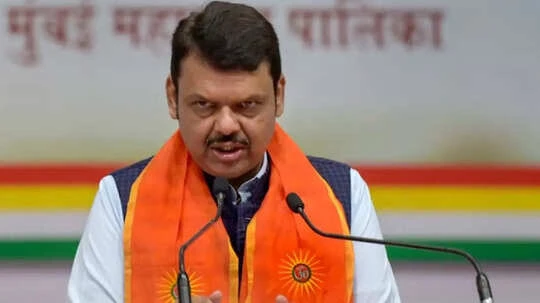Maharashtra Chief Minister Devendra Fadnavis has made a bold and unequivocal statement on the state’s language education policy, declaring that the three-language formula will be implemented 100% in Maharashtra.
His comments, made during an interview with a news channel, come just weeks after the state government withdrew the controversial government resolution (GR) that had initially mandated Hindi as a compulsory third language, a move that had sparked widespread protests.
Fadnavis’ firm reiteration has now reignited the debate. “This is not a matter of prestige for us,” he said, “but let me state this clearly, the three-language formula will be implemented in Maharashtra. Whether it begins from Class 1 or later will be decided by a committee. But I repeat we will implement it 100%.”
The CM also took a swipe at those opposing the policy on ideological lines: “What I strongly oppose is this attitude of laying out a red carpet for English while rejecting Indian languages. I will not tolerate opposition to Indian languages.”
Opposition Had Claimed Victory After GR Withdrawal
Earlier this year, the original GR mandating Hindi as a third language sparked major backlash, particularly from the Maharashtra Navnirman Sena (MNS) and the Shiv Sena (UBT), who accused the BJP-led government of attempting to impose Hindi on Marathi-speaking students.
Following protests, the GR was withdrawn, and the opposition celebrated the move with victory rallies in Mumbai where Raj Thackeray and Uddhav Thackeray, the seperated brothers joined hands for Marathi Language.
However, Fadnavis’ recent remarks suggest the government has not backed down from its core intent.
‘Hindi Not Mandatory, But Indian Language Must Be Taught’
Clarifying the government’s revised stance, Fadnavis said, “After the backlash, we held discussions with various stakeholders. The main objection was, why make Hindi compulsory? So we amended the GR. Hindi is no longer mandatory. If students want to learn Hindi, they can. If they want to learn any other Indian language, we are ready to offer it. But we need a minimum of 20 students, or else we’ll have to make online provisions.”
He also pointed to logistical challenges, saying, “If just two students say they want to learn Telugu, where do we get a teacher? But then the goalposts were moved again from ‘Why Hindi?’ to ‘Why start from Class 3? Why not from Class 6?”
Fadnavis backed the Class 3 start, citing expert opinion and global research: “Studies show that there’s a certain age at which children are more receptive to learning multiple languages. It enhances cognitive and intellectual development. That’s why even the Centre’s National Education Policy recommends it.”
